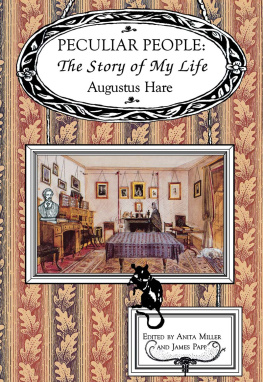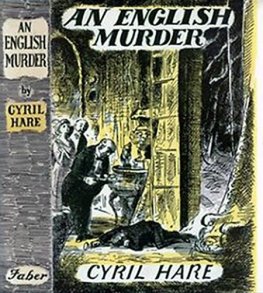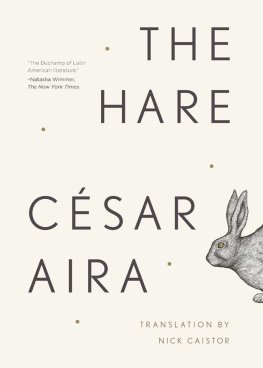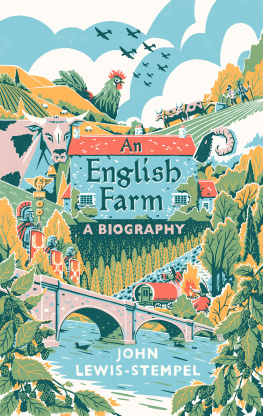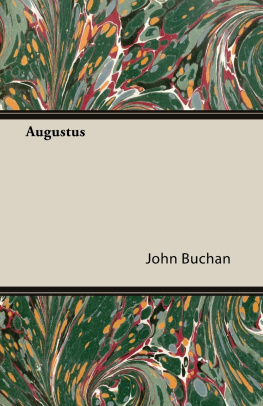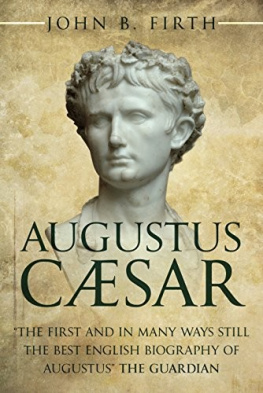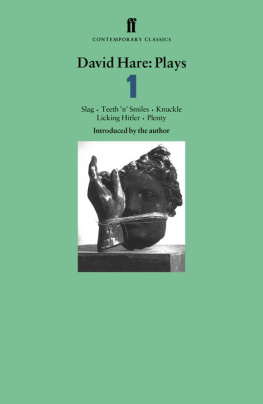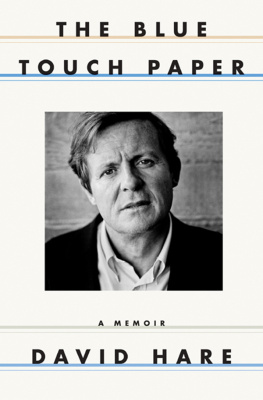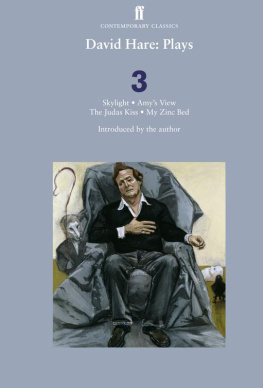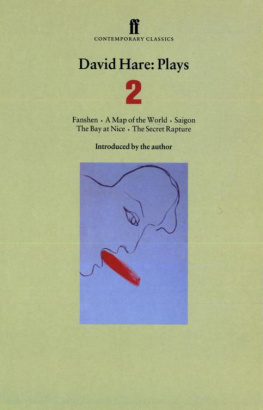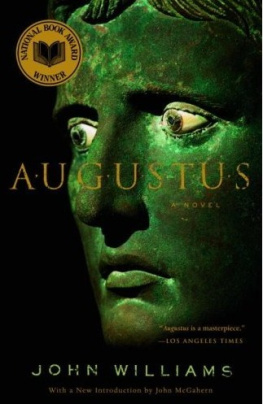
Published in 1995 by
Academy Chicago Publishers
363 West Erie Street
Chicago, Illinois 60610
Anita Miller 1995
Introduction James Papp 1995
Printed and bound in the U.S.A.
No part of this book may be reproduced in any
form without the express written permission of the publisher.
Library of Congress Cataloging-in-Publication Data
Hare, Augustus J. C. (Augustus John Cuthbert), 1834-1903.
Peculiar people: the story of my life / Augustus Hare; edited by
Anita Miller and James Papp; illustrations by Augustus Hare and
Julia Anderson-Miller.
p. cm.
Includes index.
ISBN 0-89733-388-8 $26.95
1. Hare, Augustus J. C. (Augustus John Cuthbert), 1834-1903.
2. Great BritainHistoryVictoria, 1837-1901Biography.
3. Eccentrics and eccentricitiesGreat Britain. 4. Travel writers
Great BritainBiography. I. Miller, Anita, 1926- . II. Papp,
James. III. Title.
| DA565.H2A3 1994 | 94-33759 |
| 941.081092dc20 | CIP |
| [B] |
Contents
I NDEX

Introduction by James Papp
W ho was Augustus John Cuthbert Hare? Nancy Mitfords grandfather called him a tedious toady; Sacheverell Sitwell considered him as a person of formidable learning and acuity, a huge inexhaustible store of historical knowledge, and an extraordinary repository of spine-chilling anecdote and storymore, perhaps, a large box filled with interesting things, than a human being.
Augustus Hare was born in 1834 at the Villa Strozzi in Rome, into an aristocratic and decidedly eccentric English family. With a certain careless abandon, his parents gave him as an infant to a widowed aunt, Maria Hare, who took him to live in Hurstmonceaux, Sussex, near his uncle Julius, who was the local rector and Archdeacon of Lewes. When Uncle Julius married Esther Maurice, the most alarming member of an influential family of religious fanatics, little Augustuss life became darkly Dickensian. The story of his childhood and adolescence has to be read to be believed.
His escape to Oxford in the spring of 1853 was a welcome one. After he left Oxford in 1857, he travelled with Maria HareThe Motherand spent a year in Rome, where he established a sort of relationship with his real motherhis father was long deadwhom he called Italima and his sister Anne Frances Maria Louisa, called Esmeralda. They had both converted to Catholicism, to the intense disgust of the Hare family, and they introduced Augustus into upper class Roman society. At this point Augustus embarked upon a career as a travel writer, producing two handbooks on English counties for the publisher John Murray. He received little money for this work but he found it most congenial. He was able to visit old buildings, and cultivate social connections. Like most Englishmen belonging to great families, Augustus had access to a network of carefully nurtured relationships and alliances throughout the island. He collected cousins as others collect stamps, knew everyones history and everyones worth. In those days, one could descend, respectably dressed, from a gig at the door of a country house and, if the owners great-grandfather was ones aunts cousin several times removed, one could count on a good lunch at the least.
So was established the rhythm of the rest of Augustus Hares life: escaping the English winter to Rome or the south of France, driving cross country with sketchbook and watercolors, collecting historical detail and lively anecdotes, cultivating the society of the upper upper classes and, of course, writing the travel books which established his reputationalmost two dozen altogether, among them A Winter at Mentone (1862), Walks in Rome (1871), Wanderings in Spain (1873) and Studies in Russia (1885). He became a literary celebrity in his day. He began his travels in the days of the horse-drawn coach when there was enough danger and discomfort to make travelling an adventure in itself; his Guides were published as railway lines were becoming ubiquitous and the middle classes, encouraged by Thomas Cook, were trooping across Europe armed with Baedakers. They were armed also, as Hare observed with satisfaction, with the familiar little red and black volumes of Walks in Rome, his most popular guide, which had gone into fifteen editions by the end of the nineteenth century, and twenty-two by 1925, fifty years after its first publication. He had great success, too, with his books of biography and letters. His first, a life of Maria Hare called Memorials of a Quiet Life, written over the strong objection of his family, sold out within three days, and twelve years later was in its nineteenth printing. The book reduced Carlyle to tears and convinced the Queen of Sweden-Norway to entrust the rather dull Crown Prince to Augustus for some English polish. In all, Augustus Hare produced thirty books, ten of which ran to multiple volumes.
These books were written for people with a good deal of leisure time. The travel guides begin with a chapter titled Dull-Useful Informationlists of hotels, shops and restaurants which are the stuff of travel guides today. There were fewer hotels, shops and restaurants in Hares day (at least those suitable for English patronage), but there was possibly more appetite for information about art and history. The 678 pages of Walks in Rome brim with anecdotes, but even the more discursive volumes are studded with useful information. In Studies in Russia, Hares party encounters a religious procession outside Novgorod and follows it slowly, with bare heads like our drivers, through the red walls of the Kremlin enclosure, and across the broad Volkoff to the good and reasonable Hotel Solovieff.
But it is the six volumes of The Story of My Life for which Augustus Hare is remembered today; it intrigued many and infuriated as many others since the first three volumes appeared in 1896 and the second three in 1900. Because of this hiatus Hare was able, in the second half, to discuss the critical reception of the first half. It is funny, he writes, how each reviewer wants a different part left outone the childhood, one the youth, one the experiences of a later life; there would be nothing left but the little anecdotes about already well-known people, which they all wish to keep.
Strange stories were the hallmark of the Hares and their connections. These stories were Augustuss only inheritance. At Harrow he amused his classmates with them. On the country house circuit, children clamored for them, and not children alone. Lady Waterford said she preferred Hares stories to novels, and Lady Salisbury assembled her guests to hear him; on one occasion Gladstone loitered nearby to listen. European princesses sent their ladies-in-waiting to listen, with instructions not to return without at least one tale from Mr Hare. And people told him their own stories too.
Mrs Winthrop Chanler described Augustuss story-telling: He told them slowly, in a curious rather nasal voice which had an extraordinary variety of tone and pitch. As he neared the climax, he would tremble and break and rise almost to a shriek, while he writhed in his chair, twisting and wringing his hands, tortured as it were by the intolerable horror of what he was telling. The Crown Princess of Sweden commented to Augustus that every hair of her head had curled up.
This could signify something deeper than one man attempting to be amusing. It could reflect the obsession of a society with the tale, the myth.
Next page
